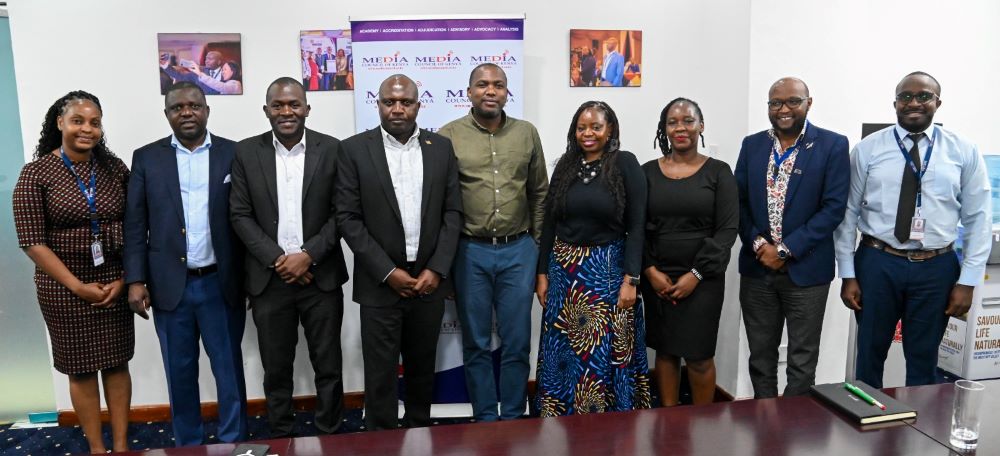
The Media Council of Kenya (MCK) has affirmed its commitment to strengthen fact-checking and enhance media literacy in collaboration with Africa Check.
MCK CEO Mr David Omwoyo emphasised the need of having strategic engagements aimed at implementing activities stated on the pact signed between the two organisations.
“There is a need to relook at the pact signed between the two organisations and come up with ways of giving it life. This can only be achieved by developing tangible work plans and budgets as well as firming up on the specific areas of collaboration”, said Mr Omwoyo during a meeting with a team from Africa Check.
Mr Omwoyo also noted that the Council has been focusing on Media Information Literacy (MIL) and Fact-Checking in media and other open spaces.
“The Council has a network of 36 fact checkers spread across our four regional offices who develop and release weekly reports on fact-checking using the i-Verify platform where we also track information issued by national news outlets”, he said.
He recognized the potential for the dissemination of unfiltered information and stressed the importance of undertaking media literacy forums.
“MILs enable consumers to critically consume news and analyse it. In schools were are using it to give students life skills, a great component of media consumption to deal with issues of media bias”, he noted.
He reiterated that the Africa Media Academy under the Council has so far developed 12 curricula and is in the process of being registered as an educational trust where fact-checking will be domiciled as a unit.
Africa Check Executive Director Mr Noko Makgato spoke on close collaboration between the institutions to ensure that they achieve quick wins within the pact.
“We need to build close relationships by sharing work plans and instituting systems that allow us to work together by focusing on the practical elements of the pact”, said Mr Makgato.
He underscored the need to develop a curriculum for journalists and incorporate MIL in learning institutions to build capacity of young people in schools.
“We will require the Council’s assistance in developing a curriculum for journalists to upscale them by giving them tools that will help them navigate the information ecosystem to deal with the perils of misinformation”, he said
“Training young people on misinformation issues will create an opportunity for them to educate their peers on the same”, he stated.
Kenya Editor Africa Check Alphonse Shiundu implored both organisations to leverage on creative ways of taking fact-checking to the next level by introducing studios for podcast recordings and conducting a series of video conferences.
He further stated that the East Africa Press Council (EAPC) will create an avenue to raise fact-checking standards in the countries within the region.
The meeting is a follow-up of the existing Memorandum of Understanding (MOU) between the two organizations, outlining their shared commitment to upholding the integrity of media information.